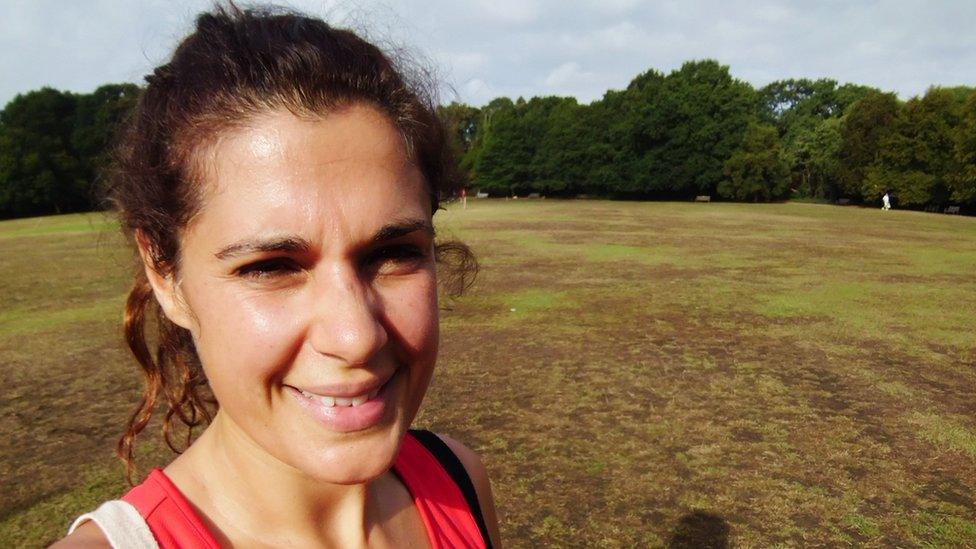Is it the end for mayoral transport powers in London?
- Published
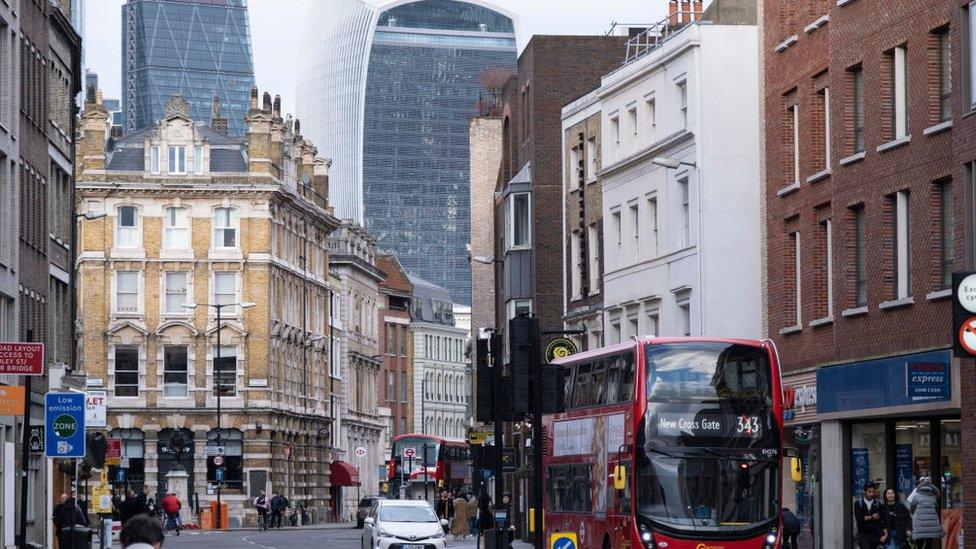
What transport policies will the new elected mayor implement?
How you get around London and how much you pay for it, are areas where the mayor of London has had a real influence.
Transport for London's (TfL) £11bn budget has, in the past, been used for numerous things - from introducing contactless payment systems, to 4G on the tube, to cable cars and cycle lanes.
Sadiq Khan froze fares and introduced the Hopper bus fare. His predecessor brought in free travel for over-60s.
All of these local, creative ideas could be voted on by Londoners and implemented, even if the policy was unpopular with Westminster.

The manifestos of the four main candidates hoping to be elected mayor in May highlight some interesting policy ideas:
Labour's Sadiq Khan mentions dynamic pricing on bus fares - so fares could feasibly change becoming cheaper at quieter times - similar to airline pricing. He also wants to expand the Ultra Low Emission Zone (ULEZ) to the north and south circulars.
Conservative's Shaun Bailey says he will use unspent Oyster card funds to pay for youth centres and merge the British Transport Police with the Met Police. He says he'll also raise £500m in corporate sponsorship.
The Liberal Democrat's Luisa Porritt wants a pay-as-you-go road pricing, to double cycling expenditure and start free bike hire on Sundays.
The Green Party's Sian Berry wants one flat rate fare across the whole of London, road charging, green bus stops and a workspace parking levy.

There are, though, two huge elephants in the room that could scupper any number of those policies.
The first is a lack of funding at TfL. The second is what will happen if commuters don't return?
Mayoral powers have effectively been reduced by the pandemic and TfL has seen fares, its main source of income, plummet.
So to fill that void, the government has given financial support to TfL - with certain strings attached.
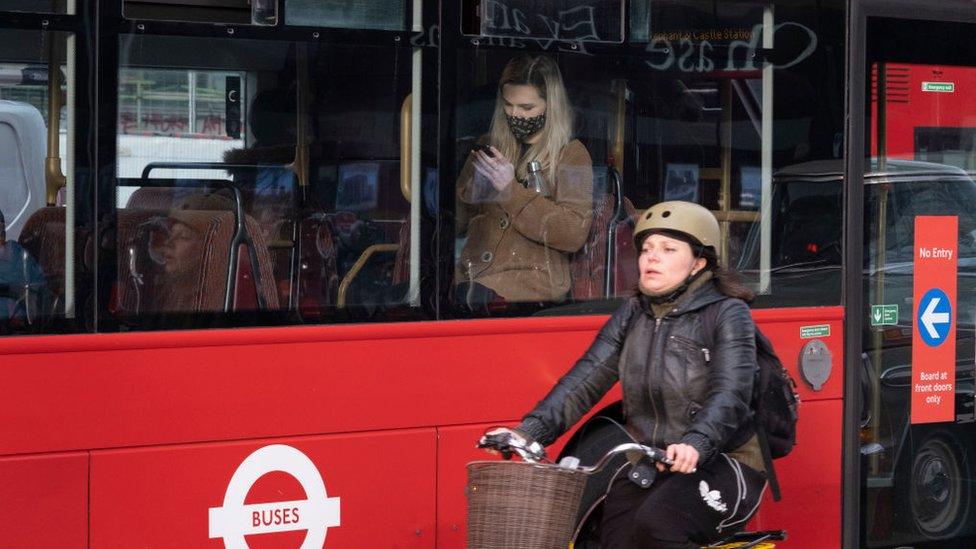
TfL's main source of income plummeted as commuter numbers fell during the pandemic
The previous deals between the Treasury and TfL have meant that fares have risen in line with inflation, plus an added 1%.
Concessions for travel for under-18s and over-60s were also paid for, in part, by a 9.5% increase in the mayoral precept on council tax.
Last year, City Hall said the cost of travel concessions for 2021-22 is between £110m and £130m.
A spokesperson said about £43m would be raise by a proposed council tax increase, leaving "between £67m and £87m to be covered by projected congestion charge income".
Professor Tony Travers from the London School of Economics, said there was a kind of "culture war" brewing on transport issues in the upcoming mayoral election.
"The future of roads, Low Traffic Neighbourhoods (LTN) and ULEZ has now got a political edge. There is a huge debate raging over who the roads are for," he said.
Investment in other infrastructure projects like Crossrail 2 has also been paused. It's clear the government's grip on projects implemented by the mayor has strengthened.
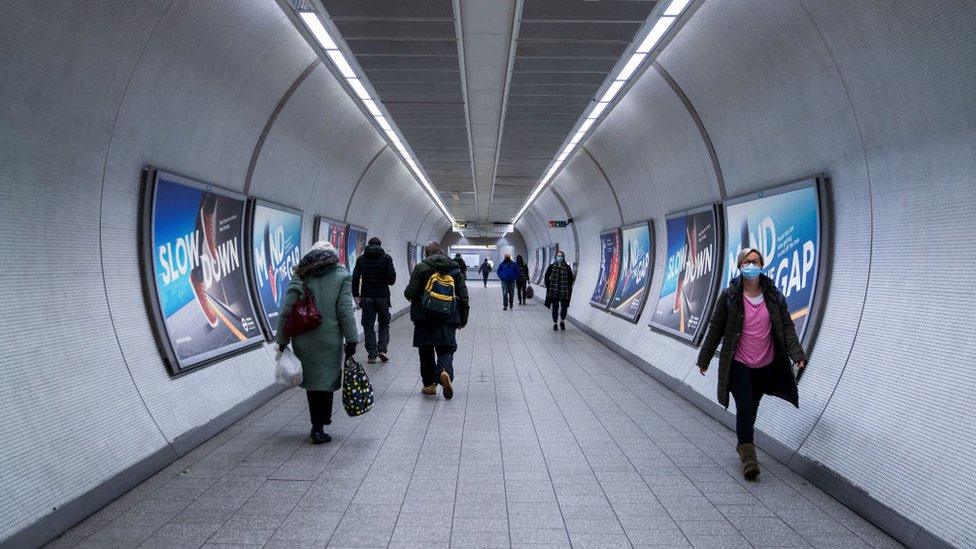
The government has made it clear it will not pay for TfL indefinitely
The question I heard a lot during previous deals was: "Why should someone from Doncaster be paying for concessions for London when they don't receive it?"
So I imagine any deal will be done with that in mind.
In the longer term, TfL has to work on becoming independent and sustainable. The government has made it clear it will not pay for TfL indefinitely.
TfL's transport commissioner Andy Byford, said bringing passengers back to travelling around London was "a matter of huge importance to keeping TfL going".
"We need London to be back to full strength to be motoring again to be working again and buzzing again so that we can generate the funds," he said.
'Infrastructure first to go'
But what if commuters don't return? Or only return at 80% of the pre-pandemic levels as working from home becomes more normal?
That would scupper most transport authorities' funding models. And there are many that think services would have to be cut.
Tony Travers said: "If funding is cut it makes you wonder if we will see a spiral that we saw in the '60s and '70s where the first things to go are new infrastructure and maintenance. And that affects service and reliability."
The mayor's grip on TfL is not what it was. Whoever wins the election will face a steep battle.
- Published31 March 2021
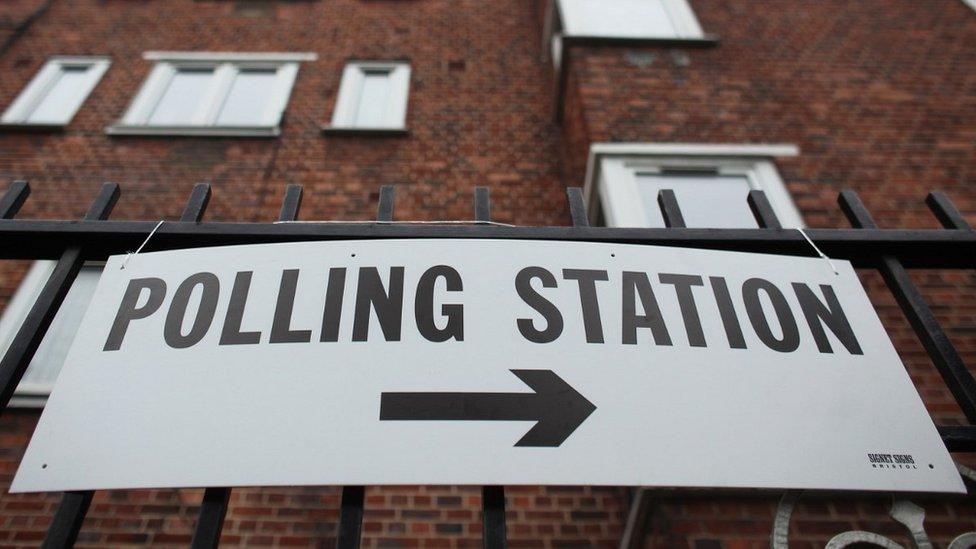
- Published26 April 2021
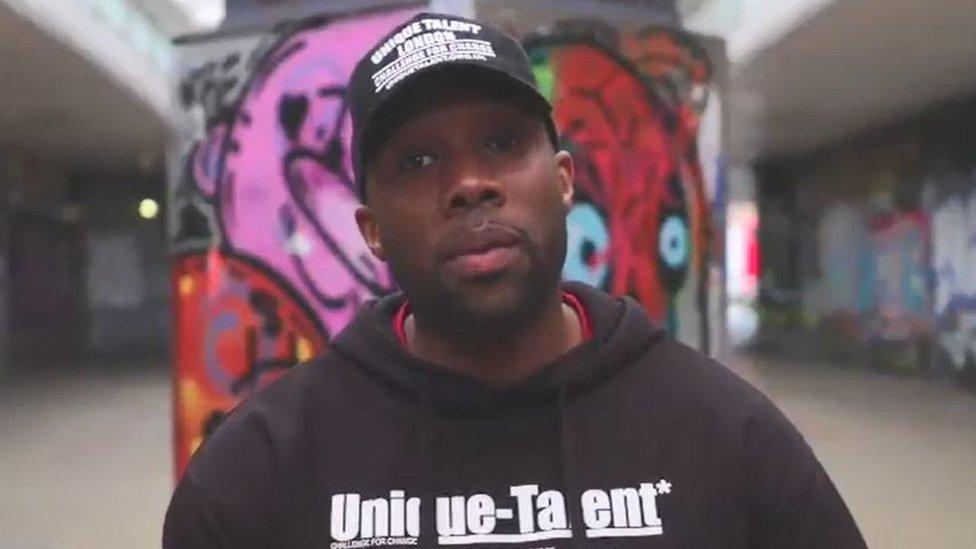
- Published12 April 2021

- Published12 February 2021
- Published4 January 2021
